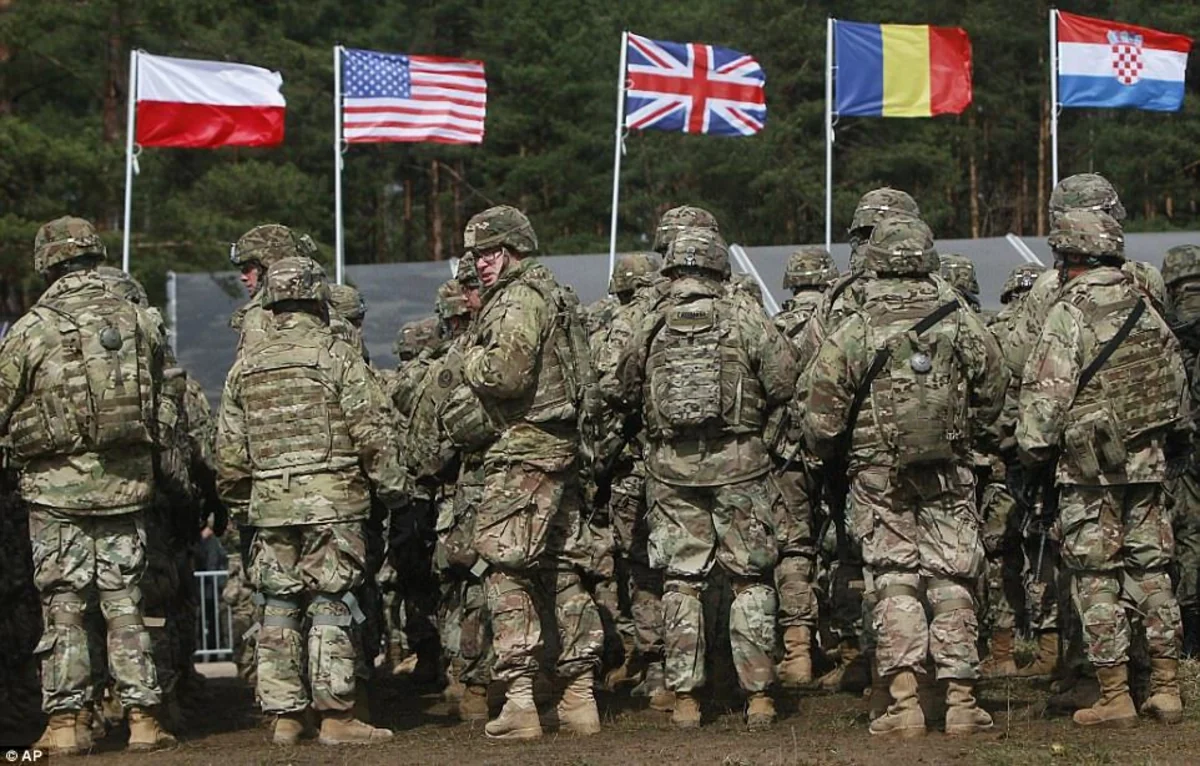US President’s threat - economic interest, secure zone - COMMENT
- 16 January, 2019
- 05:35

Baku. 15 January. REPORT.AZ/ Global superpowers already do not benefit from activities under the name of the fight against ISIS in Syria . That's why the new game starts.
The US-led international coalition has started the pullout of its troops from Syria. These forces reportedly entered Syria to fight ISIS and help Syrians to overthrow Bashar al-Assad. But the emerging picture is different.
The fact is that there is no power called ISIS. Because their number is insignificant compared to the military power of the international coalition fighting it. The question is: “Where has ISIS disappeared?”
It can be assumed that a criminal group named ISIS has been a project created by some state that has been trying to create a turmoil in Syria and in the region. This project has achieved its goal. However, superpowers were unable to overthrow Bashar al-Assad’s regime in full. French Foreign Minister Jean-Yves Le Drian has reaffirmed France’s commitment to a political settlement in Syria, and hinted that Paris does not oppose Bashar al-Assad’s participation in the presidential elections.

"If President Bashar al-Assad is a candidate, he will be a candidate. It is the Syrians who must decide their future".
Some western political circles have begun to recognize Bashar al-Assad as a power.
The news about Bahrain that resumed operations at its embassy in Syria which was closed in 2011, as well as reports on planning talks between Saudi Arabia and Assad's forces indicate that coalition forces have failed to fulfill the second task. However, Qatar’s foreign minister ruled out the possibility of re-opening an embassy in Damascus, in line with some other Gulf countries, calling Syrian President Bashar al-Assad a war criminal.
Mohammed bin Abdulrahman al-Thani added that Damascus under Assad should not be allowed back into the Arab League.
This shows that there is a different political scene.
It is known that Saudi Arabia, UAE, Bahrain and Egypt are against Qatar. Qatar has begun to intensify relations with Russia, Iran and Turkey after the restrictive statement from US. Russia and Iran support Assad and Turkey cooperates with US, Qatar, Russia and Iran on the Syrian issue. Qatar’s position means that there is another power in stock. It is supposed to be UK. This can complicate the situation a bit because the interests of the Kingdom are obviously starting to emerge without US.

US must either put pressure on these players in order to turn them to its side or diplomatically convince them that their interests are guaranteed. Among mentioned players Turkey is the only country which cooperates with more sides except from Bashar al-Assad. Just because there is no agreement among five countries to overthrow Assad, the disposition of figures is changed. It was thought that it would be too easy to overthrow Assad and fulfill the dreams of PKK / YPG-PYD terrorists. They thought like in Syria, which got out of control of the central government, they would also be able to create turmoil in Turkey. Digging a trench in the southeastern Anatolia, creating weapons ammunition depots and other fortification installations were the preparations for this treacherous goal. But all their facilities were destroyed.
So, part of the plan on Turkey has failed. Official Ankara launched anti-terrorist operations in Syria to ensure the country's sovereignty, territorial integrity and security of its citizens.
Turkey wants the US to remove PKK / YPG-PYD group from the eastern part of the Euphrates River.
However, President Donald Trump and former President Barack Obama have not followed their promise.
On the contrary, this week, US President Donald Trump has threatened to "devastate Turkey economically", if it attacks the Kurdish forces in Syria.

Turkey’s foreign minister has hit back at Donald Trump over his threat to economically devastate the country. “We have said repeatedly we are not scared of and will not be intimidated by any threats,” said Mevlüt Çavuşoğlu in televised remarks from Ankara on Monday, before rebuking the US president for using Twitter for sensitive diplomatic matters.
“Strategic partners, allies, do not hold discussions via Twitter, via social media,” Çavuşoğlu told reporters.
As you can see, US has at least a two-tiered pressure against Turkey. In this case, Turkey has two choices: either to sacrifice territorial integrity and security for economic interests, or to adopt sanctions and continue the struggle for territorial integrity and security. Ankara hasapparently chosen the second one.
On January 14, Donald Trump spoke to Turkish President Recep Tayyip Erdogan on the phone.
The US President said that during his telephone conversation with his Turkish counterpart Recep Tayyip Erdoğan they discussed the economic cooperation of the two countries and development of their potential. He also added that they also discussed the idea of creating security zones in Syria and the fight against terrorists: "I talked to President Erdoğan about our position on all issues, including a 20-mile (32 km) security zone."
The issue seems clear. The US offers Turkey a 32-kilometer security zone on the border with Syria. At this point, an interesting question arises. Who will control this area from the Syrian side? Bashar al-Assad? Certainly not, because the US does not recognize him. It turns out that the territory will be controlled by 40,000-strong (70,000 by some sources) armed forces created from among the PKK / YPG-PYD and SDQ groups in Syria. This is more dangerous for Turkey. Because US will supply the armed forces with all military equipment.

In other words, the United States wants to entrust the security zone between Syria and Turkey to PKK. The United States has long sought to implement this idea after the withdrawal of its troops from Syria. Will Turkey allow the PKK to control its border with Syria?! The answer to this question is “Definitely No!".
Turkey and the United States became strategically allies after the Second World War. So Turkey is not an ordinary state for the US. The White House knows very well that such a state is more important to US than the PKK and its branches. However, it cherishes the plans to neutralize Turkey in the future. Donald Tramp's talk with Recep Tayyip Erdogan on the development of economic relations is an indication that he does not want to let Turkey slip through the fingers.
The US delegation visited Turkey on January 15 to discuss the terms of delivery of the Patriot surface-to-air missiles. The State Department has agreed to sell the Patriot air defense systems with a total cost of $ 3.5 billion to Turkey.
Turkey again refused to reject Russian S-400 supplies which will be installed in Turkey in October of this year. The Kremlin confirmed that the purchase of US Patriot complexes by Turkey will not affect the agreement on S-400 supplies. The agreement between Russia and Turkey on S-400 is estimated at USD 2.5 bn.
Thus, the telephone conversation between the US and Turkish presidents gives grounds to say that things got worse between the parties. But it is not a secret that as far as parties depend on one another in economic terms they also protect each other. Unilateral economic relations and co-operation bring the yoke.
